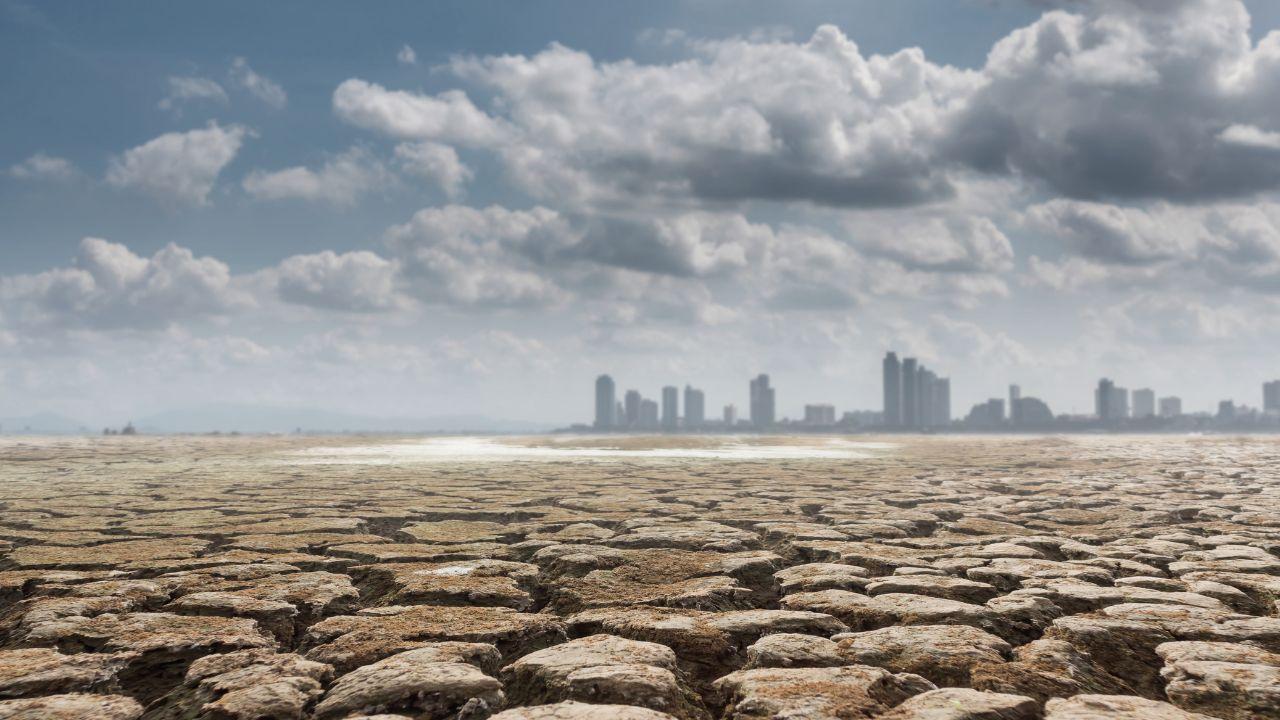
Post by : Vansh
Climate change is no longer a distant threat—it is a present reality affecting every corner of the globe. From scorching heatwaves to devastating storms, the signs are undeniable. Understanding the true impact of climate change goes beyond just rising temperatures. It encompasses environmental, social, and economic consequences that affect communities, ecosystems, and the very future of our planet.
This article explores the multifaceted effects of climate change, why immediate action is critical, and how human choices today determine the health of our planet tomorrow.
At its core, climate change is driven by the accumulation of greenhouse gases in the atmosphere. Human activities, particularly the burning of fossil fuels, industrial emissions, and deforestation, have drastically increased carbon dioxide and methane levels, trapping heat and altering natural climate patterns.
These changes are not only measurable but have far-reaching effects. Rising global temperatures trigger melting ice caps, rising sea levels, and altered weather patterns, creating a cascade of environmental disruptions worldwide. Scientific studies consistently highlight that without significant reduction in emissions, the consequences will intensify, affecting biodiversity, agriculture, and human livelihoods.
The environmental impact of climate change is evident in extreme weather events. Hurricanes and typhoons are becoming more intense due to warmer ocean temperatures, while droughts and heatwaves threaten water security and food production. Polar regions are losing ice at alarming rates, accelerating sea-level rise and endangering coastal communities.
Wildfires, another consequence, have grown in frequency and intensity, destroying forests, wildlife habitats, and air quality. Coral reefs, essential to marine biodiversity, are dying due to ocean warming and acidification. These environmental changes underscore the urgency of mitigating climate change to preserve life on Earth.
Beyond environmental damage, the true impact of climate change extends to economies and societies. Natural disasters lead to costly infrastructure damage, disrupt supply chains, and displace communities, creating climate refugees. Agriculture, particularly in vulnerable regions, faces declining yields, threatening food security and livelihoods.
Social inequalities are exacerbated, as marginalized populations are often the hardest hit by climate events. Health risks also rise, including heat-related illnesses, respiratory issues from pollution, and the spread of vector-borne diseases. Addressing climate change is thus both an environmental and a humanitarian imperative.
Combating global warming requires innovative solutions. Renewable energy technologies, such as solar, wind, and hydropower, reduce reliance on fossil fuels, while electric vehicles and energy-efficient systems lower carbon emissions. Advances in carbon capture, sustainable agriculture, and smart infrastructure help mitigate environmental impact.
Technology also enables better climate monitoring. Satellite data and predictive models allow scientists to track environmental changes, forecast extreme weather, and develop strategies for adaptation and resilience. Innovation is a critical tool in responding to the multifaceted challenges of climate change.
Governments and international organizations play a crucial role in addressing climate change. Policies that limit greenhouse gas emissions, promote renewable energy, and incentivize sustainable practices are essential. International agreements, such as the Paris Agreement, aim to limit global temperature rise to below 2°C.
Global cooperation ensures that climate action is coordinated, effective, and equitable. Funding for climate adaptation, technology transfer, and capacity building in developing countries is necessary to ensure that all nations can participate in reducing the impacts of climate change.
The content of this article is intended for informational purposes only and should not be considered professional advice. Readers are encouraged to verify facts independently and consult experts when necessary. MiddleEastBulletin news network is not responsible for any consequences arising from reliance on this information.










Curry Powers Warriors to Nail-Biting 109-108 Victory Against Spurs
Stephen Curry's 49 points propel the Warriors to a dramatic 109-108 NBA Cup triumph over the Spurs,

India Advances to Semi-Finals After Thrashing USA in Women’s Blind T20 World Cup
India secured a dominant ten-wicket victory over the USA, advancing to the semi-finals in the Women’

South Africa's Early Advantage as India Struggles on Day Two
On Day Two, India reached 138-4 as South Africa took three early wickets, complicating matters with

Kenta Nishimoto Defeats Lakshya Sen in Japan Masters Semifinal
Lakshya Sen's journey in the Japan Masters ends after losing to Kenta Nishimoto 19-21, 21-14, 12-21

Kenta Nishimoto Defeats Lakshya Sen in Japan Masters Semifinals
Lakshya Sen's run at the Japan Masters concludes with a loss to Kenta Nishimoto in the semifinals, 1

Major IPL Trade: Jadeja Joins Royals as CSK Signs Samson
In a significant IPL trade, CSK has acquired Sanju Samson from Rajasthan Royals in exchange for Ravi